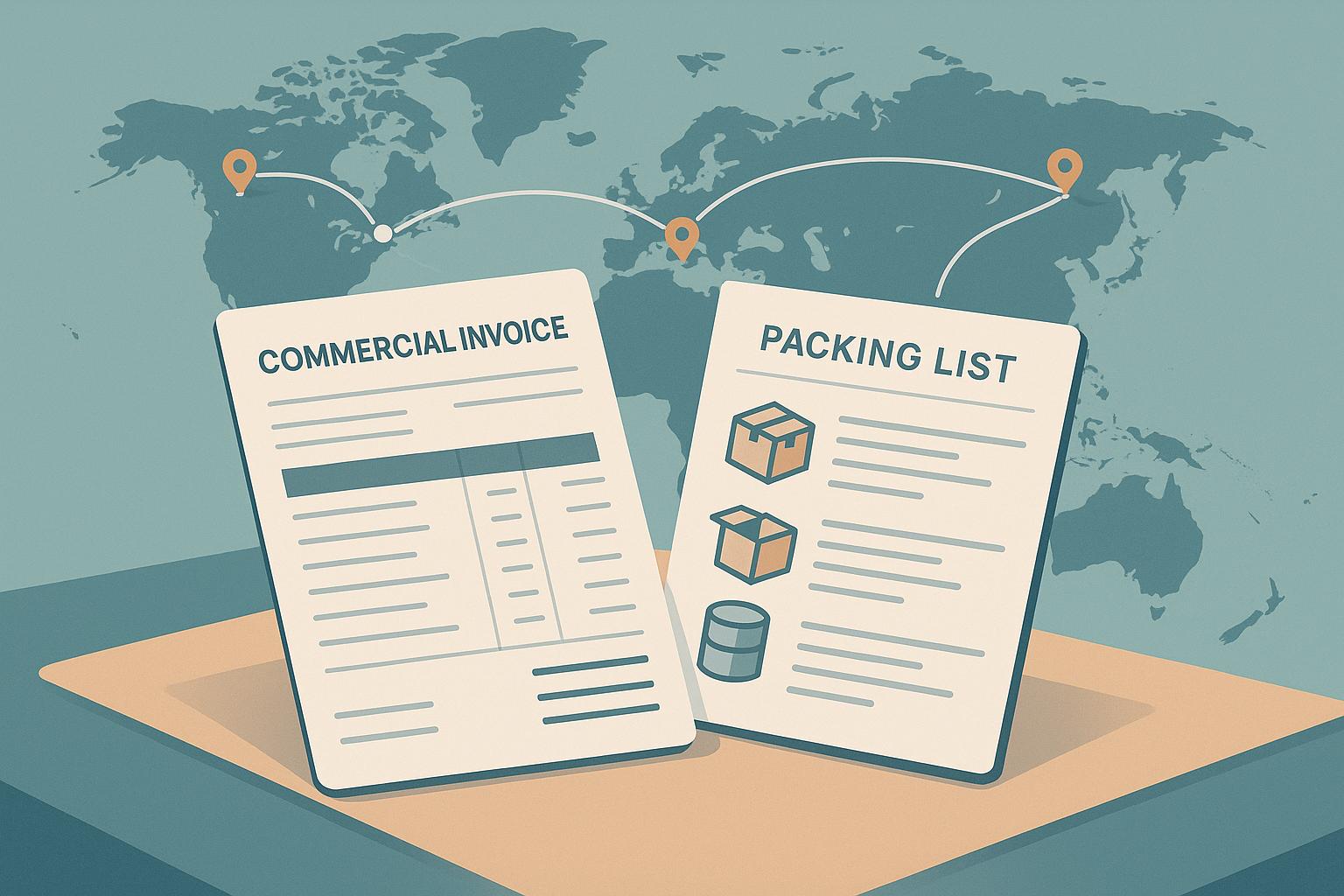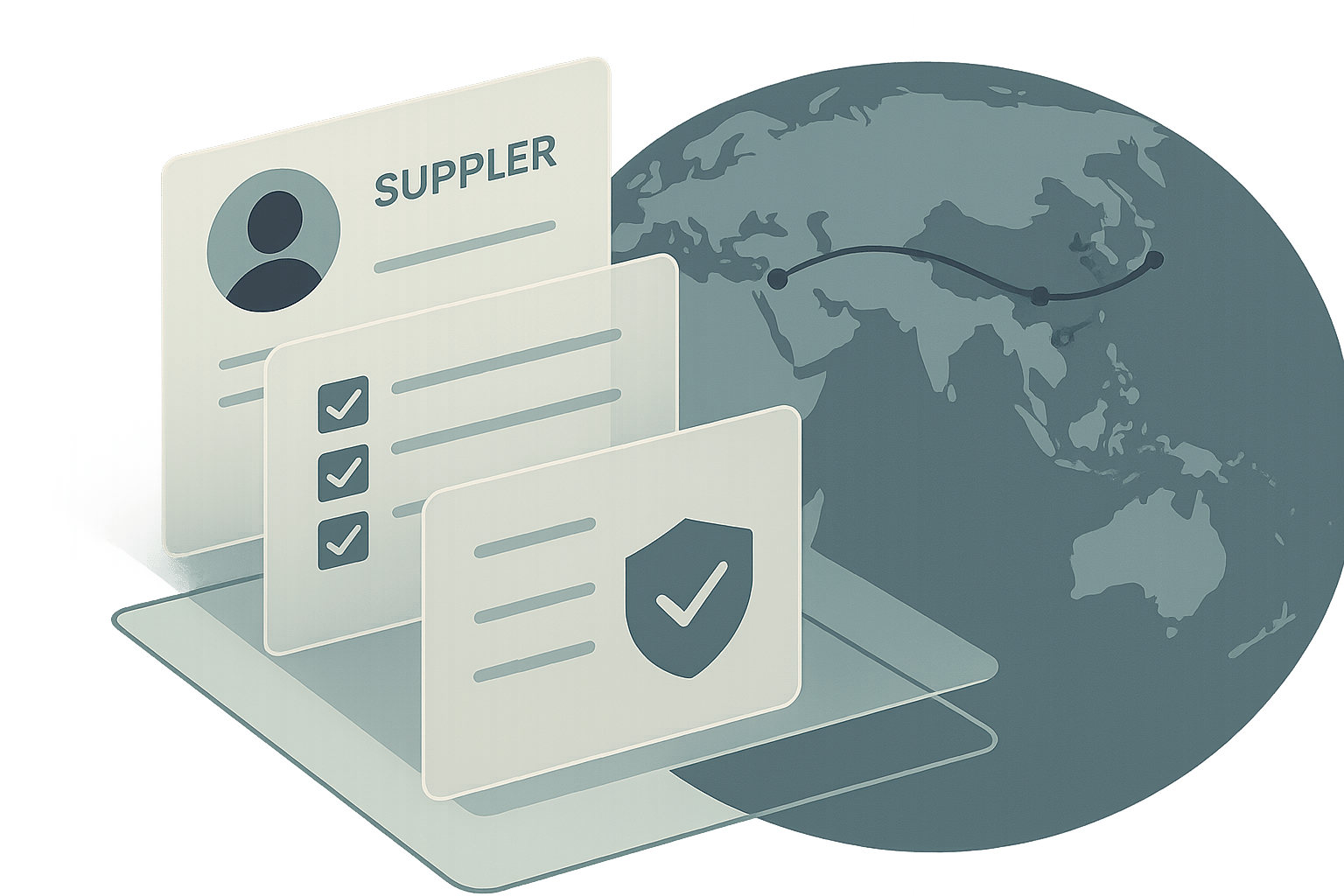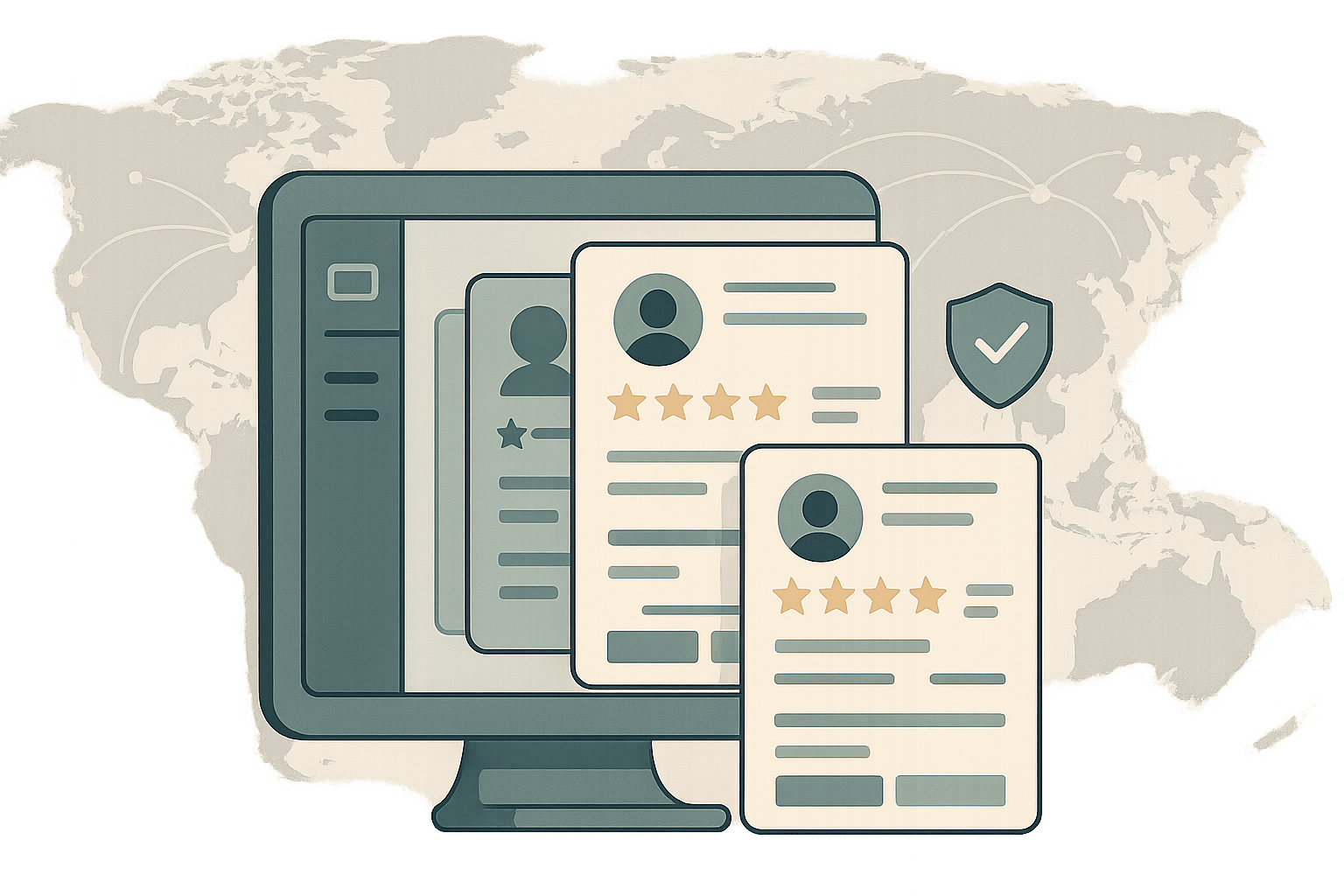Looking to source products for your business? Here's the quick answer: Alibaba is best for bulk orders and custom products, while AliExpress is ideal for small orders or dropshipping. Both platforms are part of the Alibaba Group but serve different needs.
Key Differences:
- Alibaba: Designed for businesses that need large quantities, wholesale pricing, and product customization. Best for established companies and bulk inventory.
- AliExpress: Perfect for startups, dropshippers, or businesses testing products. Offers ready-to-ship goods with no minimum order requirements.
Quick Comparison
| Feature | Alibaba | AliExpress |
|---|---|---|
| Order Size | Bulk (MOQs required) | Single items allowed |
| Customization | Extensive (private labeling) | Limited |
| Pricing | Negotiable wholesale | Fixed retail |
| Shipping Time | Longer for bulk or custom | Faster for small orders |
| Best For | Established businesses | Startups, dropshippers |
Takeaway: Use Alibaba for scaling and custom branding. Use AliExpress for testing products or small-scale orders.
Alibaba vs. AliExpress: Choosing the Best Platform for Your Business
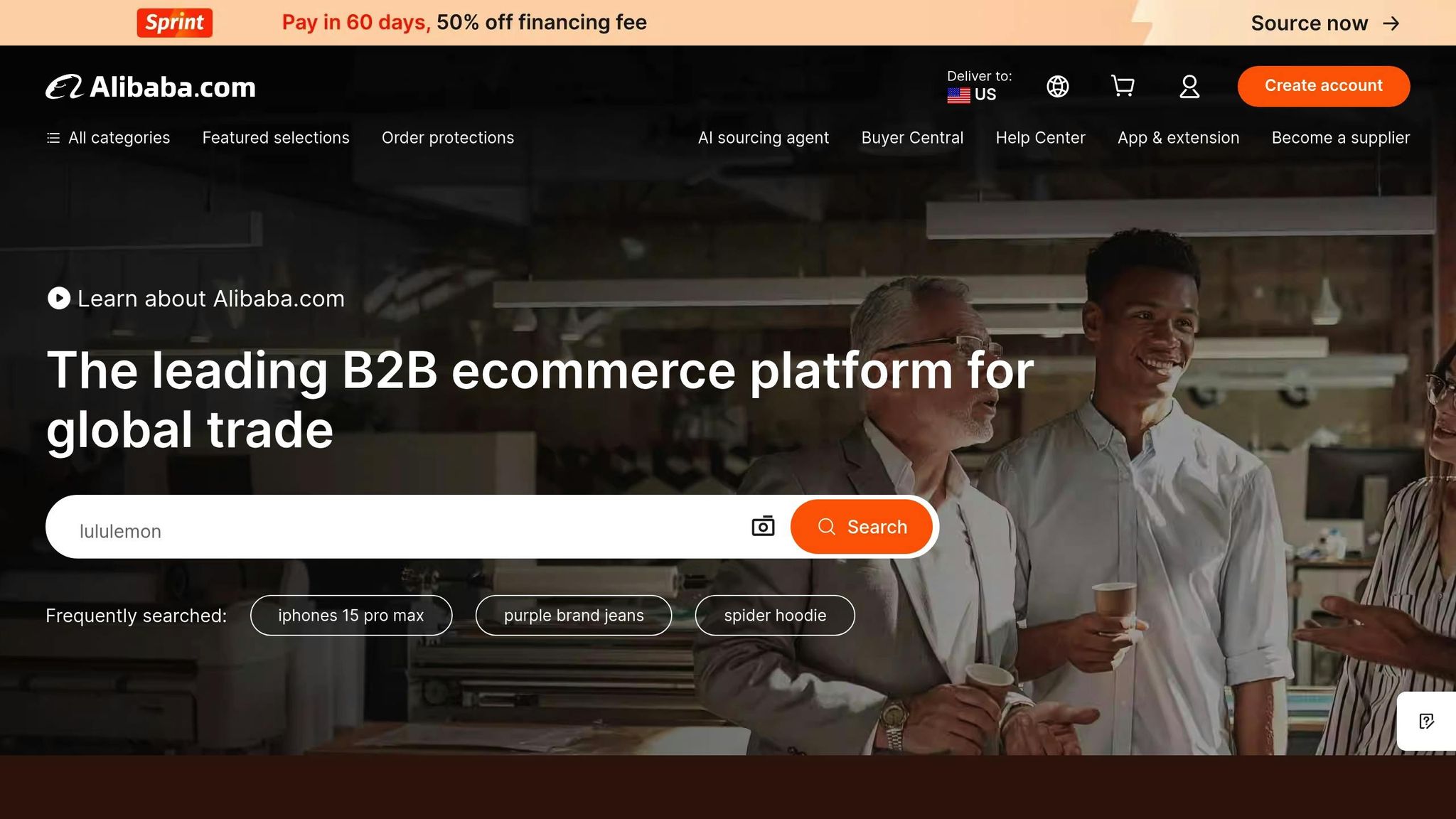
Who Uses Each Platform and Why
Understanding who uses Alibaba and AliExpress helps clarify how each platform fits into different sourcing strategies. Their user bases reflect their distinct business models and target audiences.
Alibaba Users and Business Types
Alibaba is the go-to platform for established businesses, wholesalers, and entrepreneurs looking for bulk purchasing options and product customization. With over 200 million products from more than 200,000 suppliers, Alibaba generated over $140 billion in revenue in 2024.
Major players like Amazon and Walmart rely on Alibaba to source products that expand their offerings and meet consumer demands. For Amazon FBA sellers, Alibaba’s bulk order structure and minimum order quantities (MOQs) align perfectly with inventory planning. Niche retailers also benefit by sourcing unique items - think specialized sports gear or custom jewelry - to diversify their product lines without committing to manufacturing. For instance, a pet supplies retailer might use Alibaba to stock innovative pet toys or grooming tools at lower costs, enabling competitive pricing and a broader selection.
Startups and small businesses also turn to Alibaba when scaling up. They often import products like eco-friendly goods to cater to consumer preferences or experiment with new product ideas without significant upfront costs.
Now, let’s look at how AliExpress serves a different type of user.
AliExpress Users and Business Types
AliExpress primarily attracts individual consumers and small businesses. In May 2025, the platform received 837.46 million visits. Dropshippers find AliExpress especially useful, as it allows single-item purchases without minimum order requirements. This makes it ideal for testing product ideas and fulfilling orders without the hassle of maintaining inventory.
Small businesses appreciate AliExpress for its ease of use and affordability. The platform’s relatively low prices and inexpensive shipping make it accessible for businesses with tighter budgets. Many individual entrepreneurs begin their journey on AliExpress, using it to test product concepts. Once they’re ready for larger orders and customization, they often move to Alibaba.
Common Uses for Both Platforms
Many U.S. businesses use both platforms strategically. For example, they might test products on AliExpress to gauge market interest before transitioning to Alibaba for bulk production or private labeling. This approach allows entrepreneurs to minimize risk and investment in the early stages while scaling efficiently as their businesses grow. The choice between platforms often depends on the business’s maturity and order volume, with newer entrepreneurs favoring AliExpress and more established ones leaning toward Alibaba.
Products and Order Requirements
The two platforms differ significantly when it comes to the types of products they offer and their order requirements.
Alibaba's Custom Products and Bulk Orders
Alibaba specializes in offering a wide range of products, including raw materials, finished goods, machinery, and industrial equipment. One of Alibaba's standout features is its focus on private label and custom manufacturing. Businesses can create tailored products with options like personalized engravings, custom packaging, and branded labeling. This makes Alibaba a go-to choice for companies aiming to establish their own brand identity rather than selling generic items.
However, Alibaba operates on a minimum order quantity (MOQ) system, which varies depending on the product. MOQs can range from a few dozen to several thousand units. While this may pose challenges for smaller businesses, it enables buyers to access wholesale pricing - where larger orders result in lower per-unit costs.
This structure is particularly advantageous for established businesses requiring significant inventory. For example, a private label kitchen gadget might require an MOQ of 500–1,000 units to qualify for wholesale pricing and full customization options.
On the other hand, AliExpress is better suited for businesses looking for smaller, ready-to-ship orders.
AliExpress's Ready-to-Ship and Small Orders
AliExpress focuses on ready-made products, offering minimal customization. Its product catalog covers categories like electronics, fashion, toys, and beauty products, serving over 150 million buyers across 220 countries and territories.
Unlike Alibaba, AliExpress does not enforce minimum order requirements, allowing buyers to purchase even a single item. This flexibility is particularly appealing to dropshippers and small businesses experimenting with new products. While some sellers might provide basic private labeling options, the majority of products on AliExpress are sold as-is with fixed specifications.
AliExpress also stands out for its quick shipping times, whereas Alibaba's custom manufacturing process typically requires longer lead times. This makes AliExpress an excellent choice for testing market interest before committing to larger-scale orders.
Product and Order Comparison Table
Here’s a side-by-side look at the key differences between Alibaba and AliExpress:
| Feature | Alibaba | AliExpress |
|---|---|---|
| Product Types | Raw materials, customizable products, industrial equipment | Ready-made consumer goods (electronics, fashion, toys, beauty) |
| Customization | Extensive private label and customization options | Limited customization, mostly ready-made products |
| Private Labeling | Full branding control | Basic options, limited scope |
| Order Quantity | MOQs required, bulk orders | No minimum order, single items allowed |
| Pricing Structure | Wholesale prices, negotiable based on volume | Fixed retail prices, higher per unit |
| Lead Times | Longer manufacturing times for custom products | Immediate shipping for ready-made items |
| Target Use | Brand building, bulk inventory, custom manufacturing | Product testing, dropshipping, small-scale sourcing |
The decision between Alibaba and AliExpress often hinges on where your business is in its journey. Many entrepreneurs start with AliExpress to test products and gauge market interest. Once their business model is validated and ready to scale, they transition to Alibaba for bulk orders and custom manufacturing.
Pricing and Cost Differences
When it comes to U.S. businesses, the pricing structures of Alibaba and AliExpress highlight key differences that cater to their distinct user bases and order requirements. Alibaba operates with negotiable wholesale pricing, while AliExpress sticks to fixed retail prices, creating unique advantages and limitations for each platform. Here's a closer look at how these pricing models work.
Alibaba's Negotiable Wholesale Prices
Alibaba thrives on flexibility, offering negotiable prices that reward bulk purchases with meaningful cost savings. For businesses ordering in large quantities, this can lead to significant reductions in per-unit costs.
For instance, experienced buyers often see Alibaba prices up to 30% lower compared to retail-focused platforms when buying in bulk. However, this comes with a tradeoff: minimum order quantities (MOQs) often require a considerable upfront investment.
Take a U.S. retailer sourcing smartphone cases as an example. By ordering 1,000 units, they might reduce the per-unit cost from $2.50 to $1.75. This tiered pricing structure is ideal for businesses with predictable sales volumes, as larger orders translate directly into lower costs per item.
AliExpress's Fixed Retail Prices
AliExpress, on the other hand, simplifies the buying process with fixed retail pricing. Prices are displayed upfront, eliminating the need for negotiation. While this transparency speeds up transactions, it comes at a price - literally. Retail markups are higher because sellers account for platform fees and profit margins.
This model is particularly useful for businesses with smaller budgets or those testing new products. For example, a dropshipper can purchase a single item to gauge market interest without committing to a bulk order. However, the higher per-unit cost may squeeze profit margins, especially for businesses reliant on resale.
Pricing and Cost Comparison Table
The table below highlights the key pricing differences between Alibaba and AliExpress:
| Feature | Alibaba | AliExpress |
|---|---|---|
| Pricing Model | Negotiable wholesale prices | Fixed retail prices |
| Price Flexibility | High – prices can be negotiated down | None – prices are fixed |
| Bulk Discounts | Yes – significant savings on large orders | Limited – minimal quantity discounts |
| Upfront Investment | High – MOQs require larger purchases | Low – can buy single items |
| Cost per Unit | Lower for bulk orders (up to 30% savings) | Higher due to retail markups |
| Price Transparency | Requires negotiation and quotes | Prices displayed upfront |
| Processing Fees | May apply separately | Built into item prices |
| Shipping Costs | Separately negotiated; can be significant | Often free - but factored into pricing |
When comparing platforms, it's also important to account for hidden costs like customs, taxes, and shipping. For example, customs brokers typically charge around $400 for every $10,000 worth of imported goods. Ultimately, the choice between Alibaba and AliExpress depends on your business's stage, cash flow, and sourcing strategy, as both platforms scale costs differently based on order volume and purchasing needs.
sbb-itb-633367f
Payment Protection and Shipping
For U.S. businesses sourcing products internationally, secure payment options and reliable shipping protections are crucial. Both Alibaba and AliExpress provide buyer protection programs designed to meet different business needs. Here's a breakdown of how their protection programs, payment options, and shipping methods cater to these requirements.
Buyer Protection Programs
Alibaba's Trade Assurance operates on an escrow system, ensuring funds are only released after you confirm that the delivery meets your expectations for quality and timeliness. This program includes a money-back guarantee if orders are late, incorrect, or damaged. While it's particularly suited for wholesale orders, resolving disputes for bulk shipments can take longer.
AliExpress's Buyer Protection offers a more automated experience. Refunds are guaranteed if items are delayed or fail to match the product description. Buyers can request refunds within 15 days of delivery, and the platform manages most disputes without manual intervention. This streamlined system is ideal for smaller orders and is especially useful for businesses exploring new products.
Payment and Shipping Methods
Payment Options: On Alibaba, businesses can use wire transfers, letters of credit, eChecks, and credit cards, though credit card payments incur a 2.95%–3.5% fee. Some small businesses may also qualify for interest-free financing. AliExpress, on the other hand, focuses on immediate payment options like credit/debit cards and AliPay.
Shipping Costs and Delivery Times: Shipping through Alibaba offers several options. Express shipping ranges from $4–$10 per kilogram and takes 2–4 business days. Air freight costs $4–$9 per kilogram and takes 3–7 days, while sea freight is the most cost-effective at $3,000–$5,000 per container, with delivery times of 30–40 days. AliExpress provides tiered shipping options: standard shipping usually takes 15–45 days, while expedited services like DHL, FedEx, and UPS can deliver in under 5 days.
These differences highlight how each platform tailors its payment and shipping systems to specific business needs.
Protection and Shipping Comparison Table
| Feature | Alibaba | AliExpress |
|---|---|---|
| Buyer Protection | Trade Assurance (escrow service) | Automated refund system |
| Refund Window | Until delivery confirmation | 15 days after delivery |
| Dispute Resolution | Slower for bulk orders | Faster, automated process |
| Payment Methods | Wire transfers, letters of credit, eChecks | Credit/debit cards, AliPay |
| Credit Card Fees | 2.95%–3.5% | Built into pricing |
| Express Shipping Cost | $4–$10 per kilogram | Varies by service tier |
| Express Delivery Time | 2–4 working days | Less than 5 days |
| Standard Delivery | 3–7 days (air freight) | 15–45 days |
| Economy Shipping | 30–40 days (sea freight) | - |
Both platforms implement SSL encryption to secure financial transactions. To ensure safe dealings, it's wise to thoroughly vet suppliers, use secure payment methods, and maintain detailed communication records.
Using ForthSource for Supplier Discovery
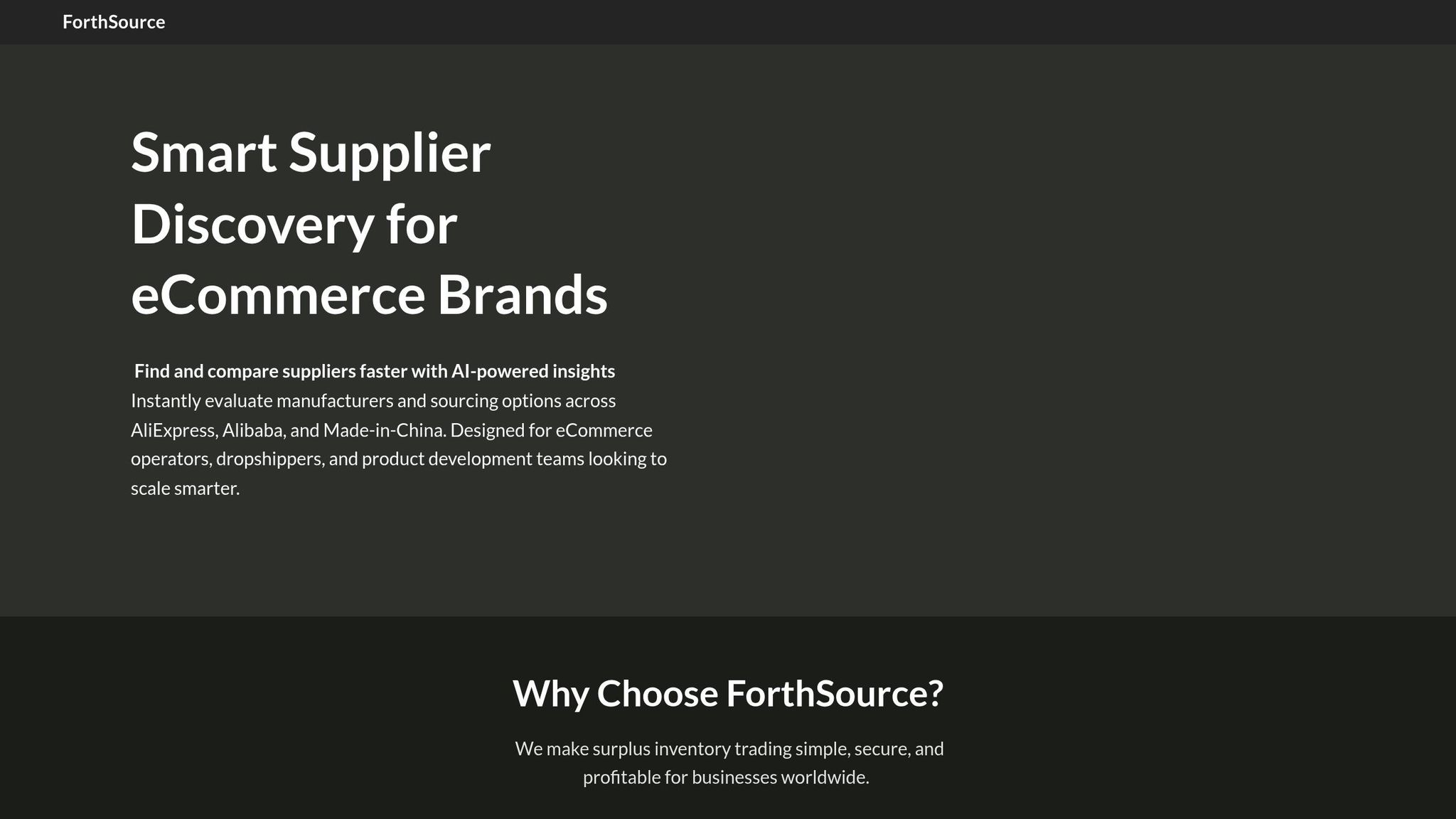
Searching for dependable suppliers on platforms like Alibaba and AliExpress can feel like a never-ending task, especially when you're juggling dozens of options for the same product. ForthSource streamlines this process by bringing supplier search, comparison, and evaluation into one convenient workspace. All you need to do is paste a product URL or type in a keyword, and the platform quickly locates suppliers across these marketplaces. This eliminates the hassle of switching between sites and managing data in spreadsheets, saving you time and effort. It’s a straightforward way to simplify supplier comparisons and complements earlier strategies for efficient sourcing.
Smart Ratings and Supplier Comparisons
ForthSource uses an AI-powered scoring system to evaluate suppliers based on factors like customer reviews, order history, responsiveness, and shipping speed. This approach can cut your research time by up to 40%. The platform organizes the top suppliers in a side-by-side comparison format, making it easy to review key details such as pricing, reliability, shipping timelines, and customer feedback. It also flags suppliers who meet U.S. and European compliance standards, including certifications like CE, RoHS, and CPSIA. Plus, you can save your searches and track shortlisted suppliers over time, helping you stay organized.
Features for U.S. Businesses
ForthSource is designed for small teams that need to make quick, informed decisions. Its private sourcing workspace ensures that your supplier research and vendor communications remain confidential - an essential feature for businesses refining their sourcing strategies. The platform also includes tools like exportable reports and team collaboration features, allowing you to save evaluations and share detailed comparisons within your team. Tailored for DTC founders, sourcing agents, and brand builders, ForthSource delivers up-to-date insights for evaluating quotes and vendor performance, helping you secure reliable suppliers without unnecessary delays.
Which Platform Should You Choose?
Selecting the right platform depends on factors like order volume, customization needs, pricing strategy, and your long-term business goals. Based on the comparisons above, here’s how to determine which platform works best for your U.S. business.
Key Points for U.S. Businesses
Order Volume
If you’re dealing with bulk orders, Alibaba is the go-to choice. Suppliers often require minimum order quantities, making it ideal for large-scale operations. On the other hand, AliExpress is perfect for smaller orders or even single items. This makes it a great option for testing new products or launching a dropshipping business.
Customization
For custom logos, modified features, or private-label products, Alibaba is your best bet. If you’re looking for ready-to-ship products without any customization, AliExpress is the simpler choice.
Pricing
Alibaba offers wholesale pricing that can be negotiated, which is great for reducing costs on large orders. However, it does require a bigger upfront investment. In contrast, AliExpress operates on fixed retail pricing, making it more suitable for startups or businesses with limited capital.
Shipping and Fulfillment
When it comes to dropshipping, AliExpress is the leader, offering reliable shipping options that can deliver in as little as seven days. While Alibaba has started to include dropshipping options, AliExpress remains the more established platform for this model.
Starting Small
Not ready to commit to bulk orders? Testing the waters with samples or small orders is a smart move, and AliExpress makes this process seamless.
Final Recommendation
Your platform choice should align with your business stage and goals. If you’re just starting out or want to test new product lines with minimal financial risk, AliExpress is an excellent option. For businesses ready to scale and manage bulk inventory, Alibaba offers wholesale pricing that can help maximize profit margins.
To make the most of your platform decision, consider using tools like ForthSource. Their advanced supplier analysis features - such as side-by-side comparisons and compliance tools - can simplify the evaluation process for U.S. businesses and help you make informed choices.
FAQs
What are the key benefits of sourcing products from Alibaba compared to AliExpress?
Alibaba is a great choice for businesses aiming to buy products in bulk at wholesale prices. It connects you directly with suppliers, giving you the chance to negotiate pricing and customize orders to meet your exact requirements. This makes it a budget-friendly solution for large-scale sourcing.
On the other hand, AliExpress works better for smaller orders or single-item purchases. Its pricing is usually fixed and designed with retail buyers in mind, rather than those looking to buy in bulk.
What are the key differences in pricing between Alibaba and AliExpress, and how do they affect small businesses?
Alibaba is known for its wholesale pricing, which is often open to negotiation. This setup works well for businesses placing large bulk orders, as it can drive down the cost per unit. However, it does require a higher upfront investment, making it a better fit for established small businesses with bigger budgets.
In contrast, AliExpress offers fixed pricing and is geared toward smaller order quantities. There’s little room for negotiation, but this structure appeals to startups or individual sellers who need flexibility and want to keep their initial costs low. In short, Alibaba is a strong choice for businesses aiming to scale through bulk purchasing, while AliExpress is ideal for those just starting out or experimenting with new products.
How can a business decide whether to use Alibaba or AliExpress for sourcing products?
When deciding between Alibaba and AliExpress for sourcing products, it’s important to weigh factors like order size, budget, and business goals.
If your focus is on bulk purchases and wholesale pricing, Alibaba is the go-to platform. It’s designed for businesses needing large quantities at competitive rates, making it an excellent option for scaling operations or maintaining substantial inventory levels.
In contrast, AliExpress caters to smaller orders, startups, and individual sellers. With no minimum order requirements and straightforward shipping, it’s a great fit for testing new products or managing a dropshipping business.
Think about key aspects like costs, product quality, shipping timelines, and your specific sourcing needs to choose the platform that best supports your business objectives.
